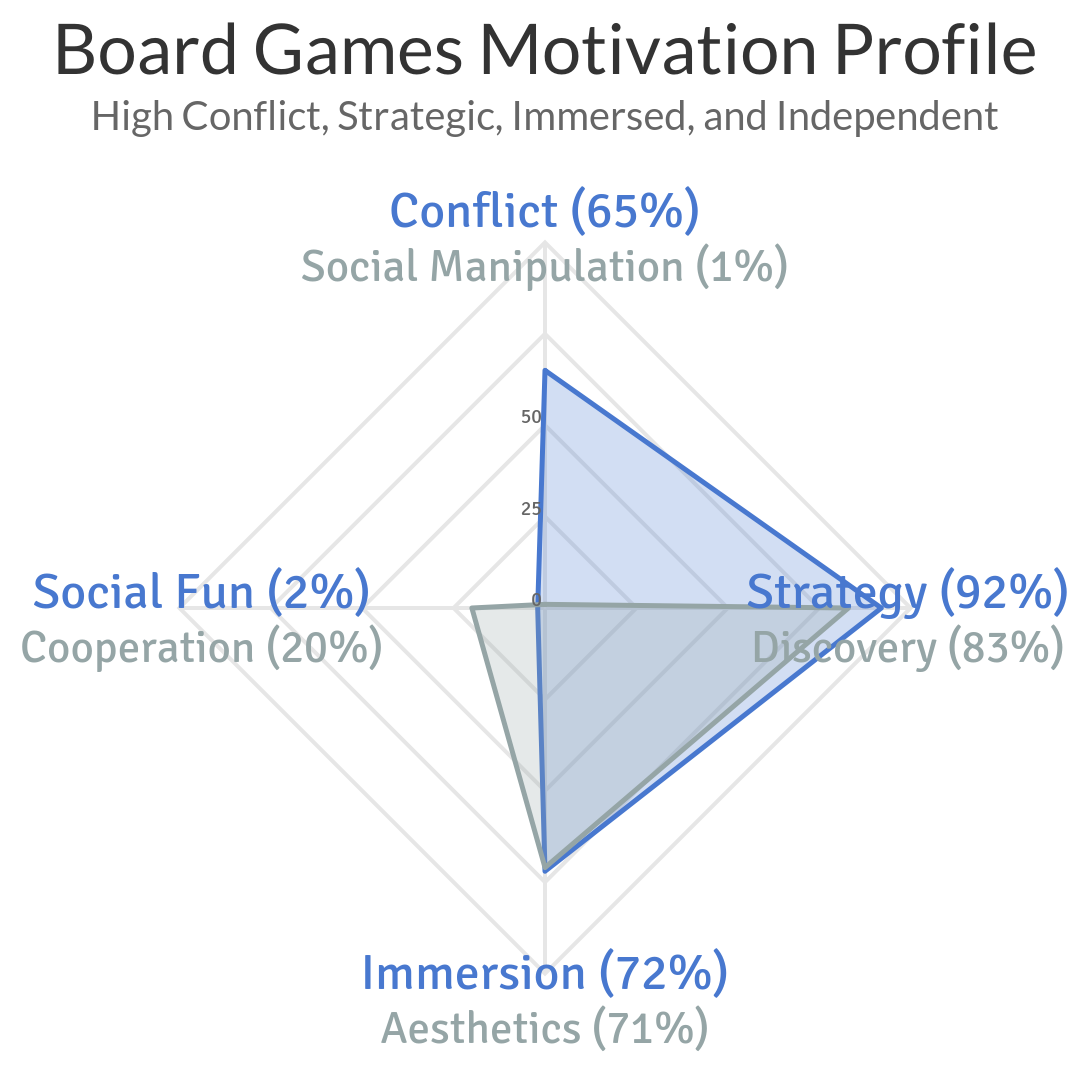Does Complexity Kill Social Fun?
I’m listening through the back-catalogue of Ludology, and want to talk about an idea from Episode 10 (from back when Obama was in his first term).
The episode is on complexity, although it’s important to note that they primarily focus on rules and systems complexity. They give a nod to what I think of as strategic complexity (which they call depth), but, mostly the complexity in the episode is how hard a game is to learn.
The guest on the episode is professor of game design Scott Nicholson, and at about the 35 minute mark, he says:
One of the frustrations with a complex game, is because the complexity is taking a big part of your cognitive load, you are less likely to want to engage in social interactions when playing a complex game, until you have mastered that complex game….
When you are dealing with the complexity of how that game functions, it takes away your interest in engaging with more of the social aspect of the game.
On some levels the idea is intuitive. When we’re using our brains to understand systems, remember rules, and solve puzzles, it’s hard to have the mental band-width to interact socially. Just ask Chelsea how useless elsewise when occupied with a game, puzzle, or challenge at work.
Psychographics
Scott’s comment makes me think of gamer psychographics – that is how we approach games and what we value in games. (I wrote an article on psychographics back in June).
My player demographic profile from Quantic Foundry
You can measure player preferences along a number of axis. Player profiles tend to cluster, that is players who enjoy in game conflict, tend to also value social manipulation. Gamers who value immersion, tend to also value aesthetics. Social Fun is not coincident with heavy Strategic lift, or Discovery (which often coincides with mechanical exploration).
But, his point is more on the issue of cognitive load actively fighting social engagement.
Poker
Poker is at least moderately complex from a rules perspective, and is one of the deepest games from an emergent complexity perspective.
Poker player Amarillo Slim
It is also one of the games highest on social interaction, and away from hooded final tables of million dollar tournaments, is full of social interaction. It’s berthed legendary personalities like Amarillo Slim, and Daniel Negreanu.
On the other hand, Poker is deeply engrained in our culture, so most people get some sense of the game young. That lightens the rules load, so the actual rules lift for a new player isn’t nearly as onerous as it would otherwise be.
Beyond that the emergent complexity is hidden. You can play at your own level, and because there is variance, you can win sometimes regardless of skill.
Magic Cards
With hundreds of keywords, abilities, and mechanics it is hard to argue that Magic: The Gathering is a simple games in terms of rules, or difficulty to learn. The game’s comprehensive rules are an impressive 259 page document, and the game supports an entire accredited judge program.
Despite the complexity, the most played version of the Magic: The Gathering is a multi-player, heavily social game mode called Commander.
Commander can be raucous, loud, and full of negotiation and backstabbing.
And players routinely dive right in. They crack a beer, fumble along, cast big spells, and have a blast.
In the Tank
Magic Cards, like poker, has a duality. Most of my experience with the game is in competitive 2-player duels at stakes ranging from the kitchen table, to tournaments with thousands of players and tens of thousands of dollars on the line.
As the stakes increase, the social aspect decreases. You’re dialed in, in the tank, serious.
That isn’t to say that we aren’t social. Many of my best friends are from the competitive MTG scene. It’s just that our socialization is off the table, between games, talking about meta, new cards, deck ideas, and how to play better (I even used to write strategy articles for a friend’s site).
Maybe it’s Luck
Poker and Magic: The Gathering both feature an equalizing in variance. That is, sometimes a less skilled player, or player exerting less cognitive load, will still win because of the turn of a card. Maybe it’s this equalizer that allows them to transcend and be complex games with heavy social interaction.
Or maybe, poker and Magic: The Gathering are the exceptions that prove the rule.
What do you think, does complexity kill social fun?



